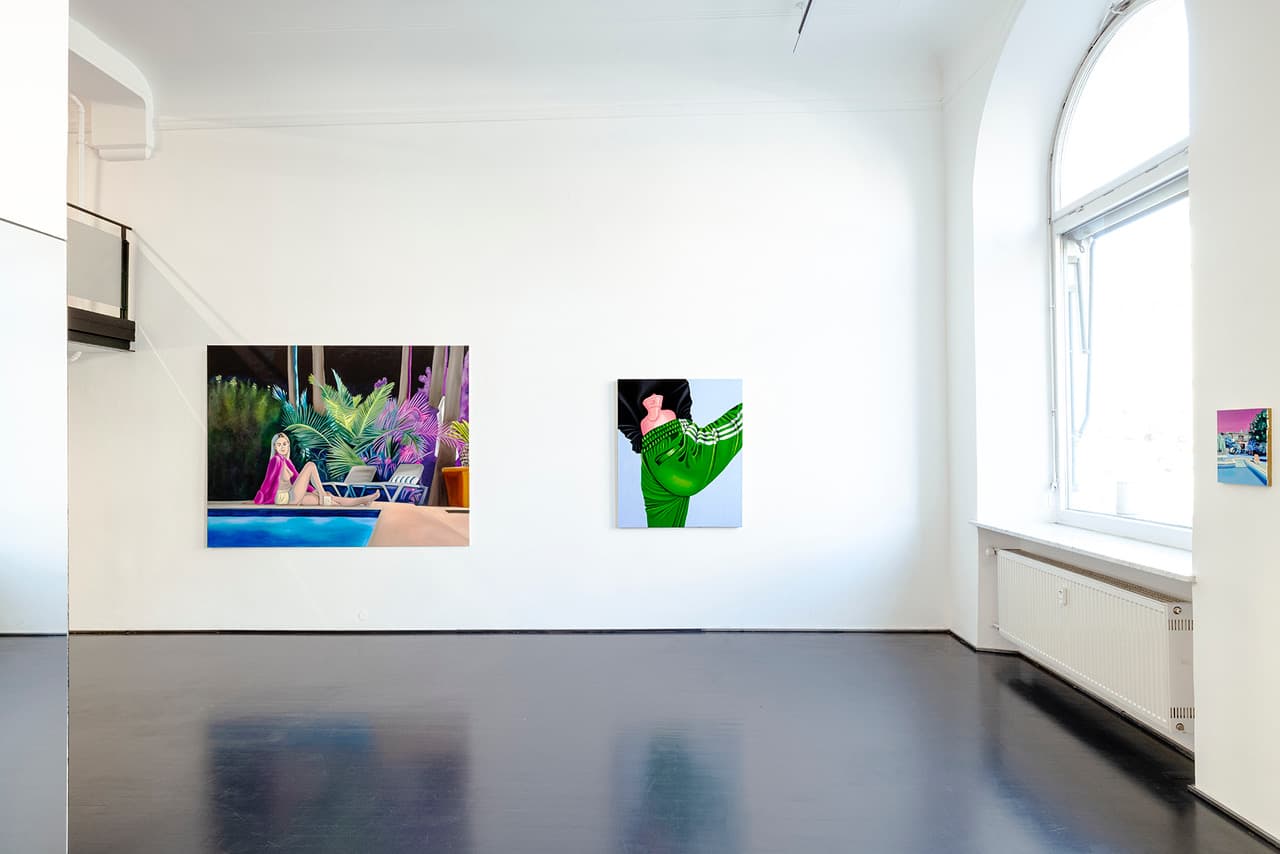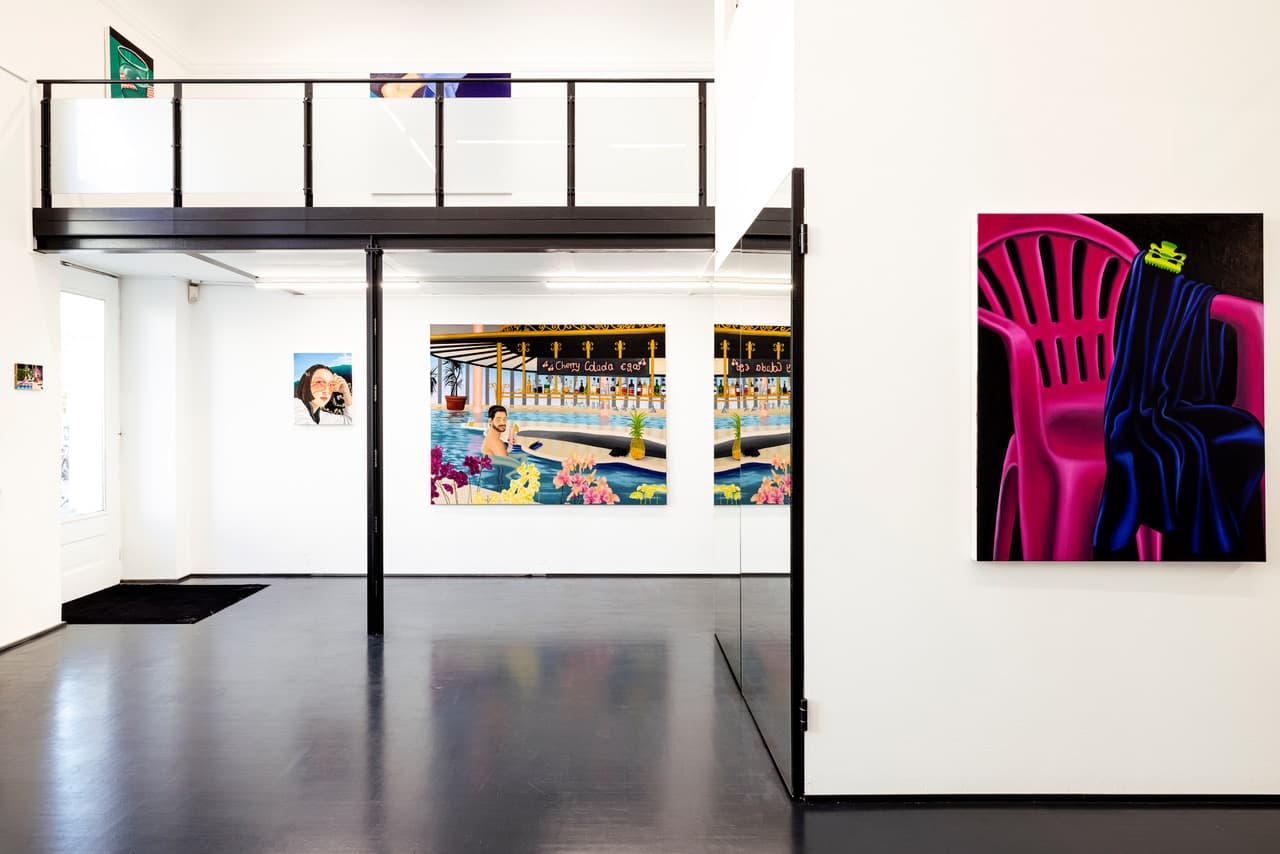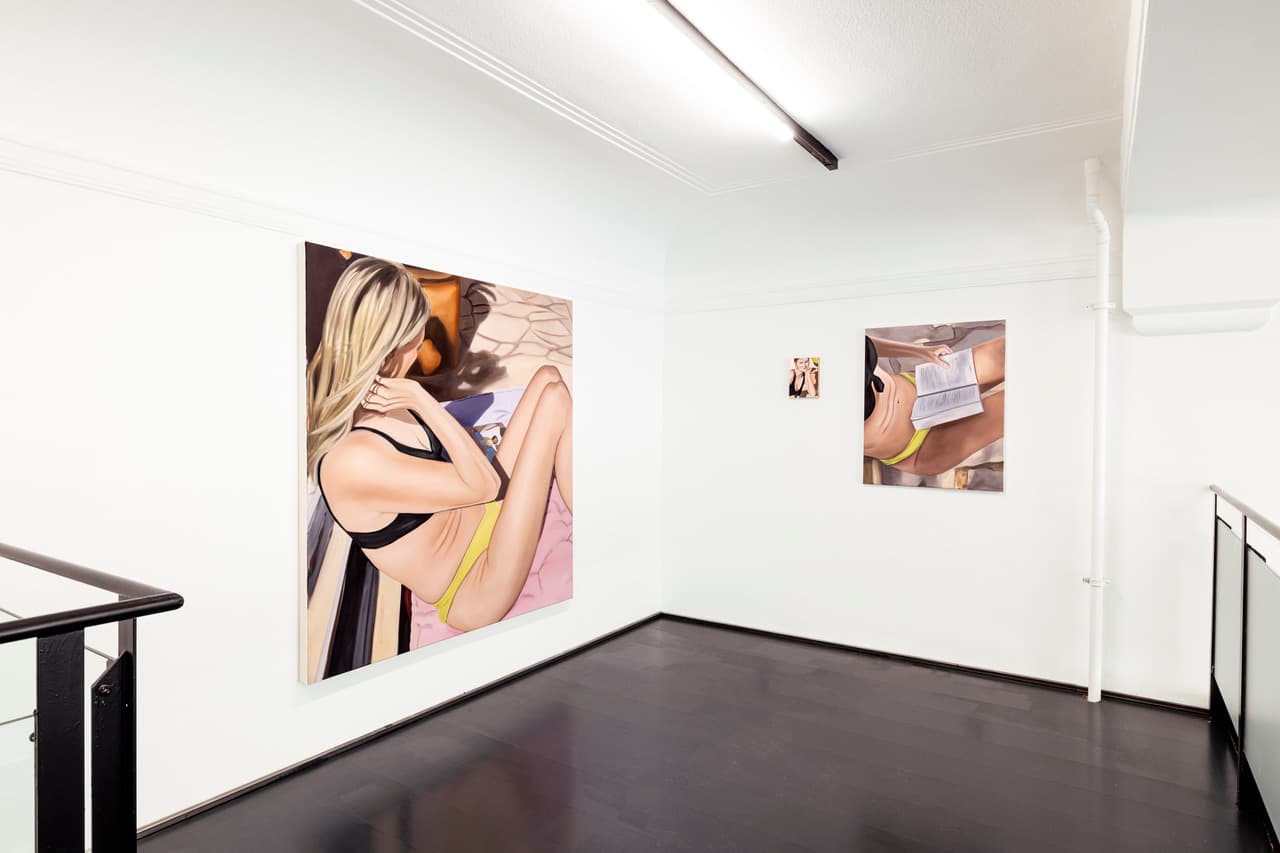Pineapple fields ⎮ Duo exhibition
Duo-Show by the Munich painters of the Karin Kneffel class, Janka Zöller (master student Karin Kneffel) and Elisa Breyer, with resurgent femininity in realism.
The deceptive lightness of perfection
The ideal dimensions of the protagonists in Janka Zöller's pictures fit exactly into the universe of southern vegetation, well-kept holiday architecture and summer lighting with which the artist surrounds them. What world do these women live in? Are they on vacation or is this ambiance their daily environment? Are we looking at dream images? Mission statements? Verena empties the wine glass and takes off her aunt's bright green suit. She stands there naked, on her own terrace, in front of her own pool. How had she ever lived without that luxury? … She walks across the beautiful floor without worrying about her body and descends the stairs into the cool blue water, hoping to relax. Who doesn't dream of being able to bathe, swim and splash around naked in their own pool as the mood takes them. [1] Like Jovana Reisinger, the author of this short text passage, in which the heroine enjoys a stereotypical, universally envied luxury after an unexpected inheritance, but feels infinitely lonely, Janka Zöller's painting provokes irritations despite the perfect surface. Her pictures are wishful thinking, in which those portrayed radiate ambivalent feelings. They have reached their goal, are happy; nevertheless, they seem to feel a certain emptiness, as the artist puts it. Her painting translates this slight insecurity into a melancholic facial expression, threatening-looking dark massifs of plants, an opaque blue but not cheerful sky.
The perfection of painting, as shown by Elisa Breyer's glossy pictures, makes dissonances all the more prominent. She paints banal everyday objects with virtuosity, over which our eyes cannot simply glide, but on which they get caught with a vague uneasiness. Her voyeuristic gaze is directed at a bright pink plastic chair on which lies a blue towel with a frog-green hair clip attached, at a glass of water in front of a bright green background, whose contents have lost their crystalline purity, at an ensemble of colorful hair ties that are held with clothespins to dry. Almost cynically, the artist forces us to perceive the ugliness and insignificance of the things we surround ourselves with behind the shiny surface of her painting, showing them up close and in aggressive, garish colours. The mood of her portrait models does not seem to affect this unpleasant environment. In the portraits that Elisa Breyer paints and which, along with the still lifes, are her main interest, we see people with relaxed facial expressions who are looking at us or staring at an indefinite point, lost in thought. The distortion and bright colors of the still life recede behind this friendly counterpart: in an ugly, problematic world, the interpersonal gaze should be loving, according to the painter.
The special intensity of Janka Zöller's and Elisa Breyer's paintings stems not least from the fact that both painters cultivate a virtuoso illusionistic style of painting, that always walks the fine line between photography and painting. Both artists work from photographs they take themselves. The recordings look like selfies on Instagram, like magazine pictures, like motifs from travel catalogs or cosmetics advertisements. Only the painterly implementation gives them a dimension that goes beyond the mere illustration and interprets what is shown. Ever since photography was invented in the second half of the 19th century, painting's impact and power of interpretation has been discussed again and again, when dealing with this new reproduction technique. Both arts disputed their illusionary effect. With photography emerging superior from this comparison, Western painting was finally liberated, it seemed, from a compulsive realism and its aesthetic autonomy was restored. The paintings by Janka Zöller and Elisa Breyer make it clear that the illusionistic representation of reality makes it possible to interpret it through painting.
Cathrin Klingsöhr-Leroy, Director Franz Marc Museum Kochel
[1] Jovana Reisinger, Spitzenreiterinnen, Verbrecher-Verlag 2021, S.140



Fotos ©Verena Hägler
Ludwigstraße 7
80539 Munich
Tuesday ‒ Friday: 11 AM ‒ 6 PM
(1 PM ‒ 2 PM closed)
Saturday: 12 PM ‒ 4 PM